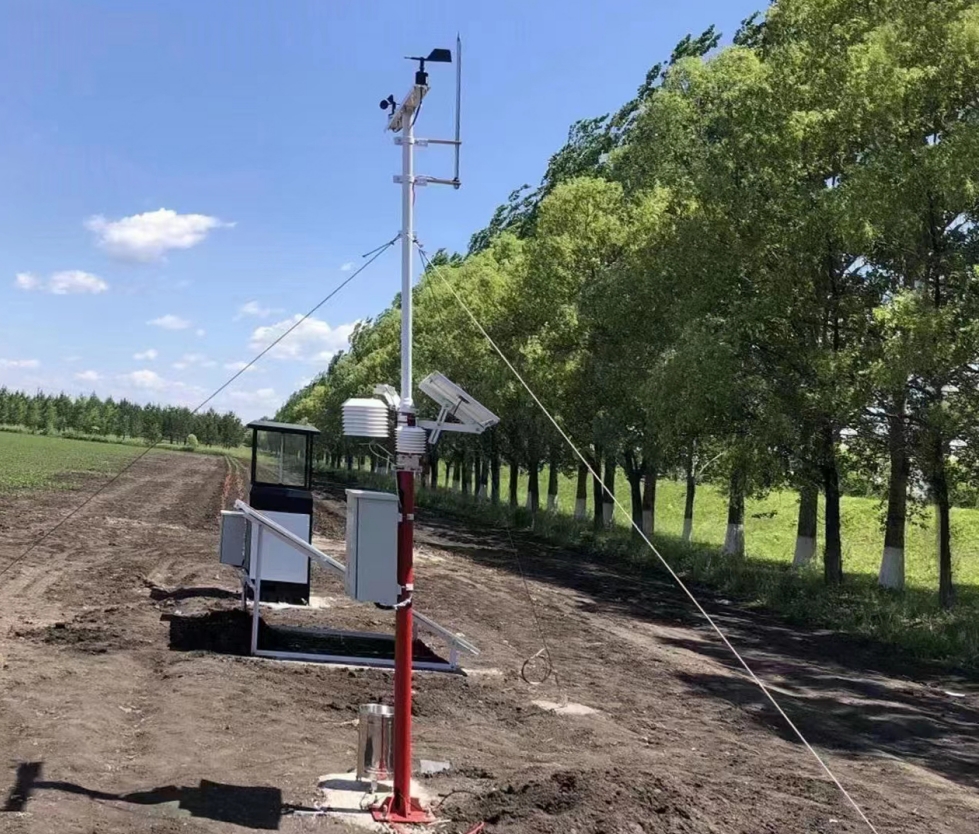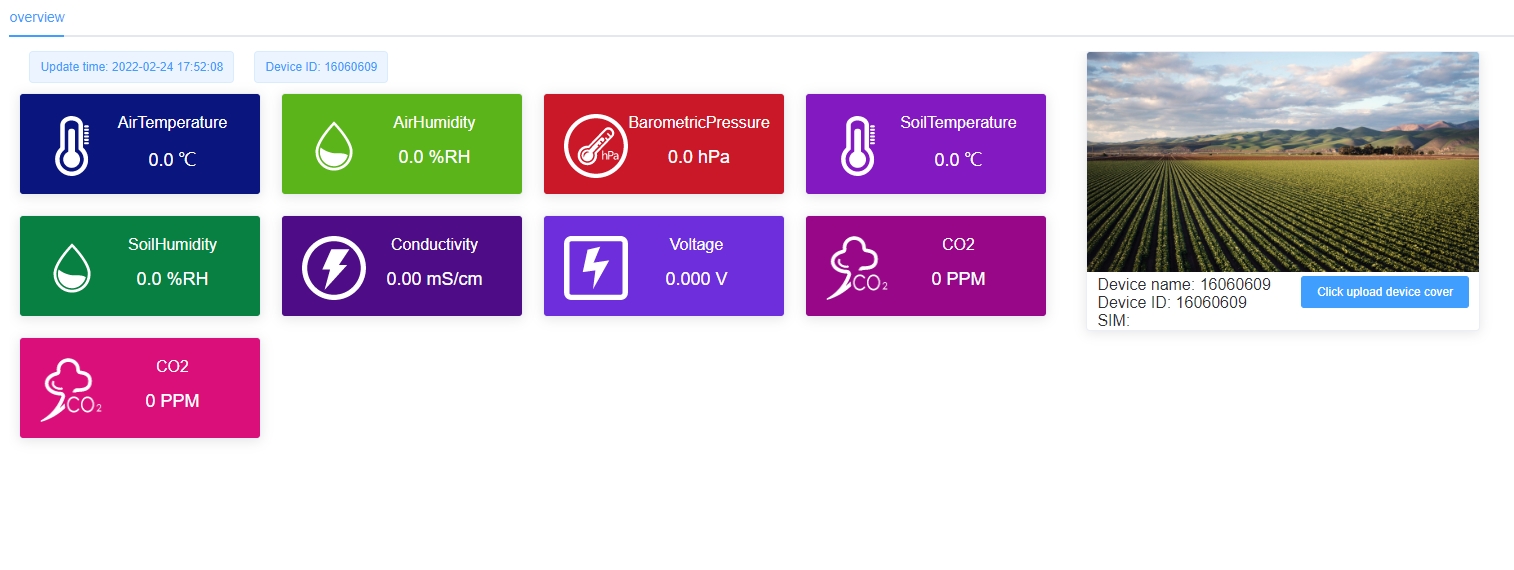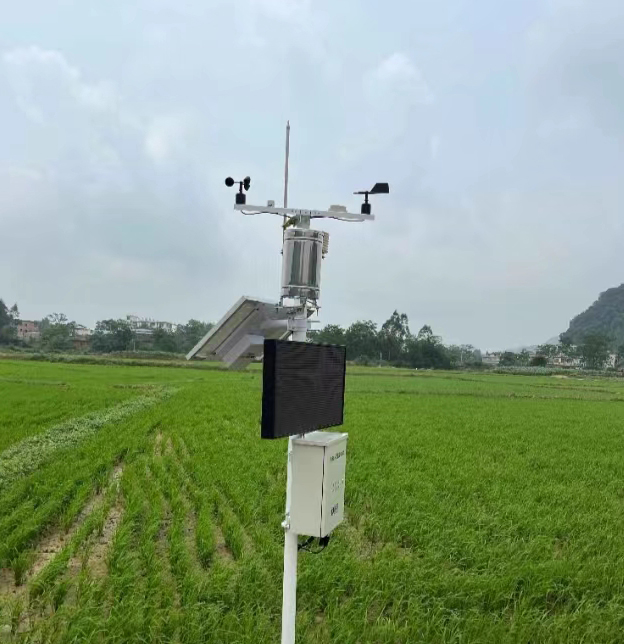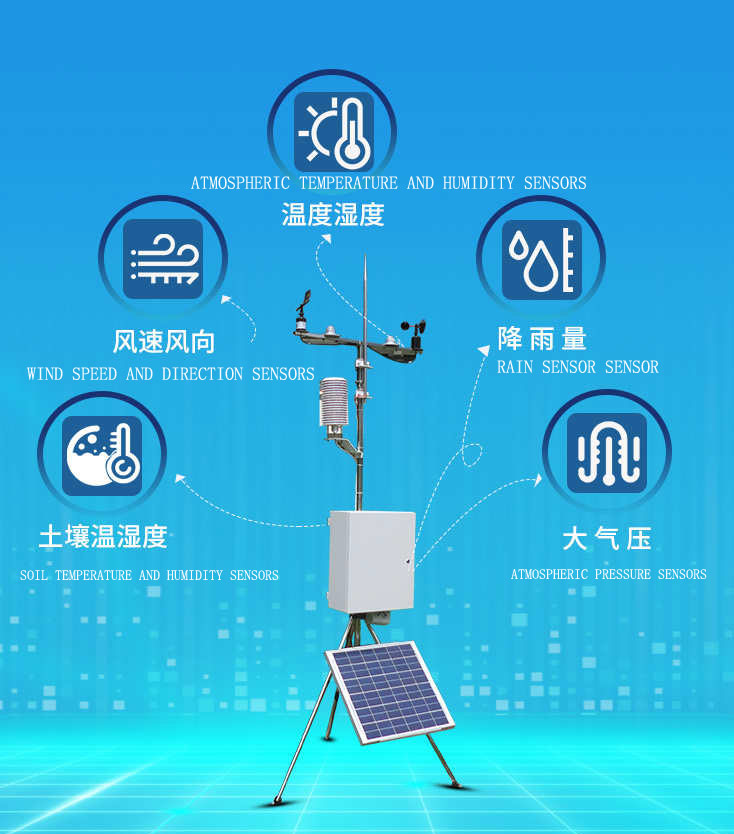

— Blogs —
—Products—
 Consumer hotline +8618073152920
Consumer hotline +8618073152920 WhatsApp:+8615367865107
Address:Room 102, District D, Houhu Industrial Park, Yuelu District, Changsha City, Hunan Province, China
Product knowledge
Time:2024-09-17 10:21:04 Popularity:951
A weather station is a device used to collect, analyze and process meteorological data. Its main function is to provide long-term, continuous monitoring and data collection of meteorological elements in the atmospheric environment, such as temperature, humidity, barometric pressure, wind speed, wind direction, rainfall, and solar radiation. Weather stations can be simple, containing only a few basic sensors, or complex, equipped with multiple advanced sensors and transmission systems.
- Sensors: used to measure various weather elements such as temperature, humidity, barometric pressure, wind speed, wind direction, rainfall, solar radiation, etc.
- Data collector: responsible for centralized collection of data collected by sensors and transmission of data to the data processing and storage system.
- Data processing and storage system: Processing, analyzing and storing the collected data are realized by computer hardware and software.
- Communication equipment: used for remote transmission of data to ensure that the data can be sent to the central server or user terminals in real time or at regular intervals.
- Power supply: to provide a stable power supply for the weather station to ensure the normal operation of the weather station, which can use utility power or renewable energy such as solar panels.
Data from weather stations are vital for weather forecasting, climate research, agriculture, aviation, traffic management and other fields.

An indoor weather station is a device designed to monitor and record meteorological parameters of the indoor environment. It usually contains sensors for temperature, humidity, barometric pressure, etc. and is used to measure and monitor basic meteorological parameters of indoor air. Below are its features and application scenarios:
- Usually small in size and compact in design.
- Measured parameters mainly include temperature, humidity, barometric pressure and air quality.
- Sensors are usually not required to withstand extreme weather conditions.

Home: Help family members to understand the indoor environmental conditions, such as temperature, humidity, etc., so as to adjust the air conditioner, humidifier and other equipment to improve the living comfort.
Office: In the office environment, the indoor weather station can monitor the indoor air quality to ensure that employees work in a comfortable environment and improve work efficiency.
Laboratories: In a scientific research environment, where precise control of the indoor environment is essential, indoor weather stations can provide accurate data on environmental parameters to support the accuracy of experimental results.
Hospitals: Hospitals have strict requirements for indoor environments. Indoor weather stations can monitor and maintain appropriate temperature and humidity conditions, which can help patients' recovery and medical care.
Breeding industry: Monitor the environment of animal breeding, such as greenhouses or farms.
An outdoor weather station (also known as a wireless weather station or OWS) is a device specifically designed for outdoor weather monitoring that provides detailed information on parameters such as temperature, humidity, barometric pressure, wind speed, wind direction and rainfall. It usually includes sensors for measuring these parameters and wirelessly transmits the data to a central unit or receiver for analysis and display. The following are its features and application scenarios:

- The design needs to be able to withstand weather extremes such as wind and rain, high and low temperatures.
- Measurement parameters are more extensive, including temperature, humidity, barometric pressure, wind speed, wind direction, precipitation, solar radiation and so on.
- Usually need to be installed in an open and unobstructed place for accurate measurement.
- Weather forecasting: provide real-time weather data for weather forecasting.
- Environmental monitoring: monitoring air quality, water quality and other environmental indicators.
- Traffic Management: Monitor road weather conditions to ensure traffic safety.
- Water Resources Management: Monitor precipitation and evaporation for water resources planning.
Agriculture: Help farmers adjust irrigation, fertilization and pest management strategies according to real-time weather conditions to improve crop yield and quality.
Environmental Protection: Monitor environmental conditions, assess the impact of meteorological factors on ecosystems, and support environmental protection measures and ecological restoration efforts.
Urban planning: Provide data support for urban planning and public facility management, such as optimizing urban greening, designing buildings for climate adaptation and improving traffic management.
Disaster Warning: Timely warning of extreme weather events, such as storms and temperature anomalies, through real-time monitoring of meteorological data to help emergency response and disaster preparedness.
Outdoor activities and tourism: Providing accurate weather information to outdoor enthusiasts and travelers to help them plan their activities effectively and ensure safety.

Monitoring Objects: Indoor weather station mainly monitors the weather parameters of indoor environment, while outdoor weather station focuses on outdoor weather monitoring.
Application Scenarios: Indoor weather stations are more suitable for indoor environments such as homes, offices, laboratories, etc., while outdoor weather stations are widely used in agriculture, environmental protection, urban planning, disaster warning and outdoor activities.
Equipment Configuration: Outdoor weather stations usually contain more sensors, such as wind speed sensors, wind direction sensors, solar radiation sensors and rainfall sensors, to comprehensively monitor outdoor weather conditions.
Summary
The main difference between an indoor weather station and an outdoor weather station is the location they are installed in and the environmental conditions they need to withstand. Indoor weather stations are mainly used for monitoring and controlling the indoor environment to enhance living and working comfort, while outdoor weather stations focus on collecting and analyzing meteorological data from the outdoor environment to meet a wider range of meteorological challenges and needs, and are more widely used in agriculture, environmental protection, urban planning and other fields to provide important meteorological information to support people's production and life.
Weather stations are an indispensable part of modern weather monitoring systems, and they help people better understand and manage the environment we live in by providing accurate data.
Related recommendations
Sensors & Weather Stations Catalog
Agriculture Sensors and Weather Stations Catalog-NiuBoL.pdf
Weather Stations Catalog-NiuBoL.pdf
Related products
 Combined air temperature and relative humidity sensor
Combined air temperature and relative humidity sensor Soil Moisture Temperature sensor for irrigation
Soil Moisture Temperature sensor for irrigation Soil pH sensor RS485 soil Testing instrument soil ph meter for agriculture
Soil pH sensor RS485 soil Testing instrument soil ph meter for agriculture Wind Speed sensor Output Modbus/RS485/Analog/0-5V/4-20mA
Wind Speed sensor Output Modbus/RS485/Analog/0-5V/4-20mA Tipping bucket rain gauge for weather monitoring auto rainfall sensor RS485/Outdoor/stainless steel
Tipping bucket rain gauge for weather monitoring auto rainfall sensor RS485/Outdoor/stainless steel Pyranometer Solar Radiation Sensor 4-20mA/RS485
Pyranometer Solar Radiation Sensor 4-20mA/RS485
Screenshot, WhatsApp to identify the QR code
WhatsApp number:+8615367865107
(Click on WhatsApp to copy and add friends)